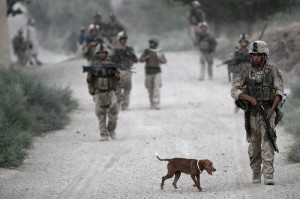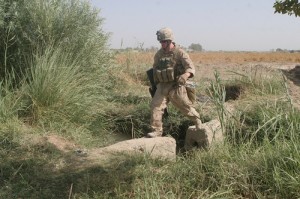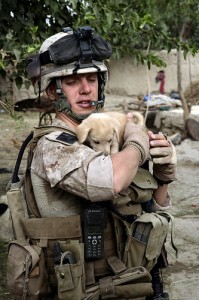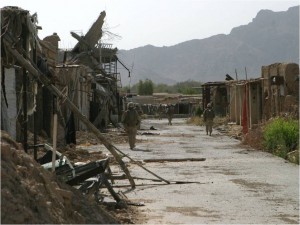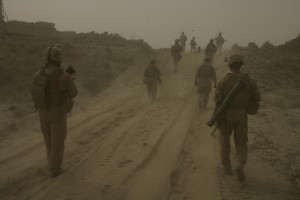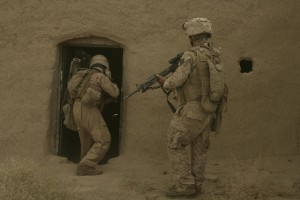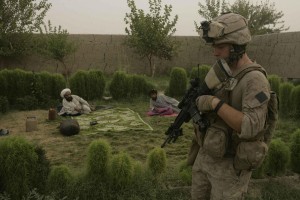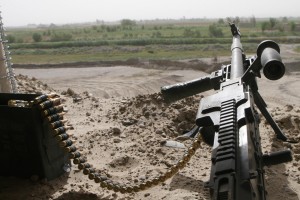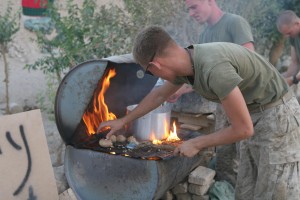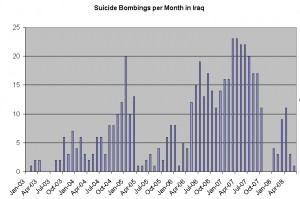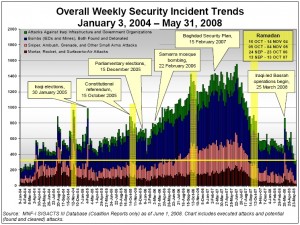The Captain’s Journal doesn’t like to be negative, but it is necessary to engage in truth-telling. For more than half a year The Captain’s Journal has been in a state of near despair over the failure of NATO to deploy forces to Afghanistan, employ a realistic set of rules of engagement, and implement a coherent, consistent counterinsurgency strategy. There are seasons in counterinsurgency, and the campaign will soon suffer under the weight of U.S. and NATO being viewed as occupiers rather than liberators. Timeliness is everything in COIN.
The Pentagon is months behind us, but it appears that the sentiment is now mutual.
American officials are in a state of near despair about the failure of Britain’s European allies to do more to beef up Nato combat power in Afghanistan.
A Pentagon adviser told The Telegraph that US commanders wish they had never agreed to Nato taking charge of major combat operations against the Taliban in the lawless south of the country.
They believe that different military rules of engagement and different approaches to reconstruction have made it impossible to devise a unified strategy for fighting and nation building, leaving the way open for the resurgence of the Taliban.
So what do rules of engagement have to do with the campaign in Afghanistan? The Germans know full well what a restrictive set of ROE can do to efforts to militarily defeat the enemy. Not long ago they had to allow a Taliban commander to escape because he wasn’t brandishing a weapon while escaping. Troops can act in self defense, but many cannot conduct offensive operations. Continuing with the Telegraph report:
The Pentagon consultant pointed to the different national rules which mean that troops from several Nato allies like Germany are banned from conducting offensive military operations, or conducting patrols at night.
The adviser said: “There’s frustration, there’s irritation. The mood veers between acceptance and despair that nothing is changing. We ask for more troops and they’re not forthcoming in the numbers we need.
“The mistake was handing it over to Nato in the first place. For many countries being in Afghanistan seems to be about keeping up appearances, rather than actually fighting a war that needs to be won.
“Was that necessary diplomatically? Probably. Is it desirable militarily? I don’t think so and nor do most others who are involved with Afghanistan,” he said.
The consultant, who advises the Pentagon on security coordination with the Afghan military, said American ire is not directed at the British, who are “doing what they can”.
Ali Jalali, the Afghan interior minister between 2003 and 2005 endorsed that view that the Taliban can only be defeated and marginalised from Afghan life if there is a new strategy and a unified military command.
In an interview with The Telegraph he said: “In the absence of an overall counterinsurgency strategy, what the international community and the Afghan government are doing is not designed to win the war, rather not to lose.
“That is a major problem. There’s no campaign plan. We need a unified command of all forces that can do three things: fighting, stabilising and peacekeeping. Unless you speak with one voice it is not going to work. We need more troops to stabilise the country.”
There has been a serious strategic malaise in Afghanistan since the inception of NATO presence. So in addition to advocating more troops, we have advocated a division of command, with the U.S. taking over at least the Southern region (or permanent command of the campaign). But the same countries who know that there is strategic malaise continue to encourage it by refusing to adopt any other strategy or ROE, or even consider a reorganization of forces.
It gets worse. Even among the staunchest of allies there is a reluctance to face the real causes of failure.
“The problem,” says one officer, “is that we are focusing on protective mobility. We are definitely going down the road the Russians went in the Eighties, with over-reliance on massive armoured vehicles.”
The debate is starting on the ground because soldiers are frustrated that they can march their hearts out all day to track the enemy, only to be blown up by a mine. They query how a lumbering convoy of 100 armoured vehicles can ever surprise an enemy who knows every rock and cave in his own back yard. The time has come, suggest some, to fight the way the enemy fights – but smarter.
In the Rhodesian insurgency, tiny units called fire forces, working in groups of four or eight, would drop into enemy territory by parachute or helicopter, unheard and unseen.
With the aid of local trackers, they remained concealed for days, watching the enemy’s movements and waiting patiently for the optimum time to strike. Again and again the guerrillas were horrified as their safety cordon unravelled, with colleagues falling dead around them.
By contrast, our strategy is static, based on bases in fixed locations. Troops leave them to go on patrol in full view of the enemy – which had fatal consequences this month. “It’s bloody hard to deceive the enemy with a column of ground movement that can be picked up 500 metres beyond the base,” says one veteran. “The effect of four helicopters disgorging 100 soldiers from an unexpected direction would have a huge impact, and would lead to a reduction in the opportunities to blow us up with mines.”
So the British are advocating distributed operations now. Then, they point the finger of blame at the lack of air transport.
The reason why the US Marines were so successful in southern Helmand this spring was because they were able to land 600 troops in one lift in one night. In the two weeks I was with them, the Paras could only muster one air assault of two helicopters that had to go in three lifts, hugely increasing the risk of the enemy assembling an anti-aircraft team to attack them.
Landing so many Marines had nothing whatsoever to do with their success in Helmand. The Marines stayed around to conduct continued counterinsurgency operations, as we discussed in U.S. Marine Style Counterinsurgency. If the Marines had all marched on foot to Garmser – not, by the way, a ridiculous notion – it wouldn’t have mattered. They could have sent word to the Taliban by courier that they were coming. The Taliban were dug in and waiting for the fight. Helicopters simply made it easier on the infantry.
The British are pointing to distributed operations, air power, discrete mobility, and all manner of tricks and toys that they believe will enhance the campaign. To be sure, we also believe that materiel availability should be increased, and we have been a proponent of distributed operations in the past, along with the robust projection of air power.
But it should be remembered that upon the initial engagement of the Marines in Garmser, the British complained about the hard tactics by the Corps. More helicopters can be supplied to the theater, but without force projection and an increase in troops, the materiel won’t matter. Ali Jalali is right. NATO is in the theater to keep from losing. This very strategy will ensure loss.
